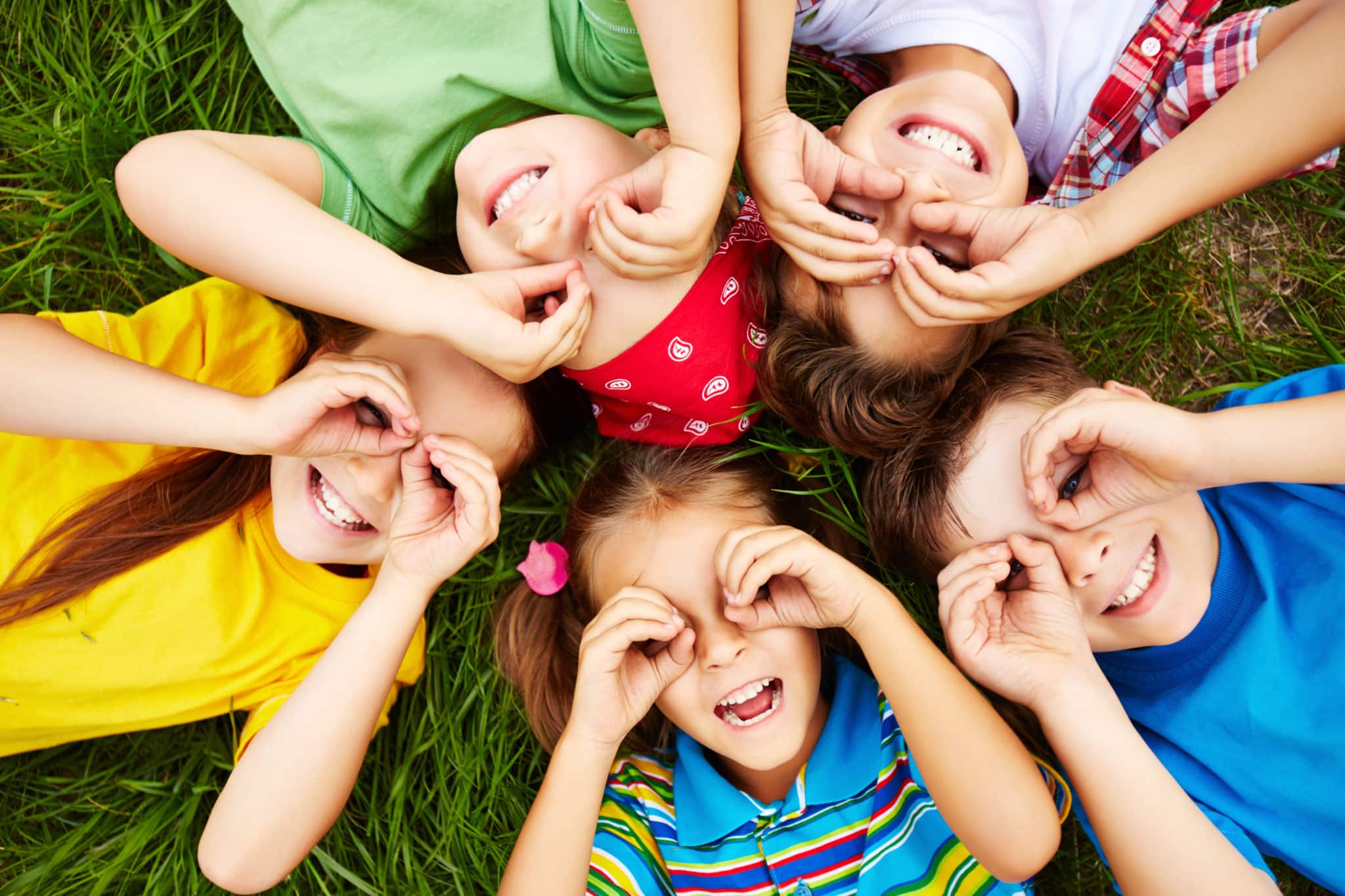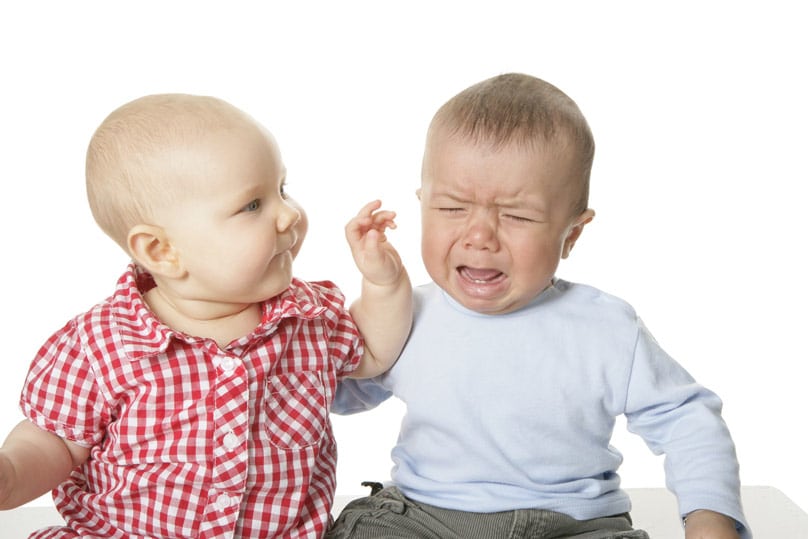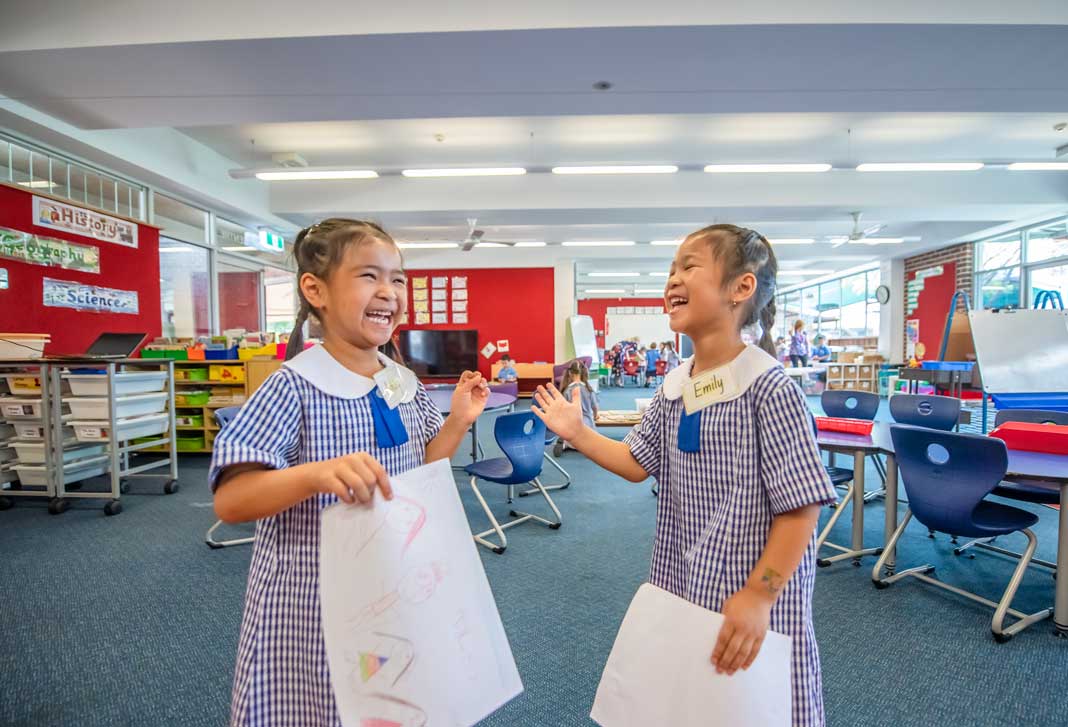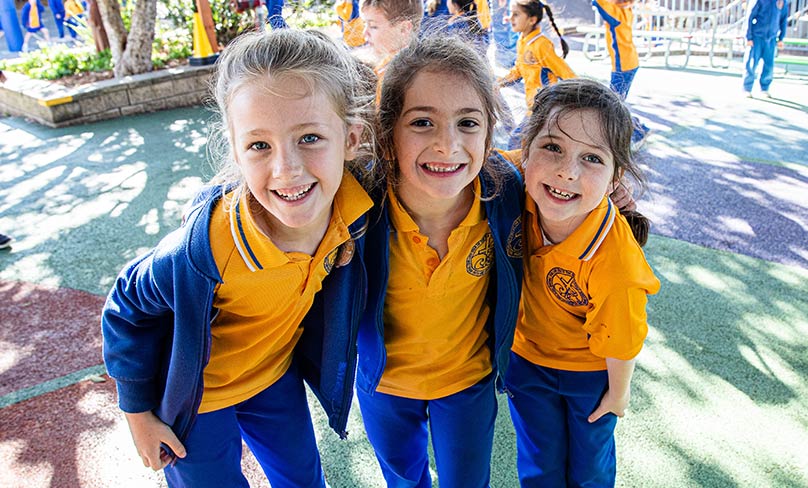
This blog is in partnership and sponsored by Nutricia.
Social skills are a critically important component of strengthening our children’s emotional immunity to life’s big challenges, and for developing resilience in our children.
Children with strong social skills have been shown to do better in life. The ability to navigate the world socially (what’s known as social and emotional intelligence or EQ) often matters more for lifetime success than how smart our kids are!
But what are social skills, and what developmental milestones should we expect our children to reach… and when?
Social Skills
Social skills are about so much more than the ability to talk and learn language. Communication is critical for social success and the psychological immunity it brings. But there is much more to real resilience and immunity.
Skills like self-awareness, impulse control, emotional regulation, conflict resolution, and the ability to communicate clearly: these are qualities that lead to flourishing relationships, academic success, and most of what else predicts great outcomes in life. But… we’re getting ahead of ourselves. Our little ones have a LONG way to go before they’re achieving these kinds of social milestones. There is a lot of foundation work that happens in their first year of life, which could be its own blog post alone, but when it comes to language, that all begins after their first birthday.
Ages and Stages
After Age One
The early days revolve around a series of coos, which parents should focus on returning with what we like to call ‘Motherese’. However, when children turn one they begin to use their very first meaningful words. “Mum-mum” or “Dadda” are common examples. This intentional use of language can happen anywhere from 11 months through to around 18 months. By around the age of two, our children begin telegraphic speech, putting two (or perhaps even three) words together into short sentences if your baby isn’t saying anything by around 18 months, see your healthcare professional.
By this age, our little toddlers love having back-and-forth conversations with us using nonsense words. They also love giving us toys or other playthings and then taking them back – over and over again. These rituals continue to teach our children regulation, communication, and positive social interaction.
And they start to develop that thing all parents dread, separation anxiety. Separation anxiety is not the same as stranger anxiety. A baby is scared of strangers (like their Aunt Abbie who they’ve never met) but with familiarity that fear leaves. Separation anxiety isn’t about new people. It’s fear that a parent/caregiver will leave them alone! While separation anxiety can begin as early as 9 months, it usually peaks around 14-18 months. Most children grow out of this anxiety by around the age of two (or maybe three in some more challenging cases).

After Age Two
If your child hasn’t had a word explosion yet, be prepared. It’s coming. Typically, this happens shortly before their second birthday (and sometimes as early as 18 months), when our children start to learn lots of words. They usually can’t recall them when tired, hungry, stressed or angry. But they are picking up on these words and their vocabulary expands tremendously as they pass their second birthday.
Our children slowly become more social from age two. While they’re typically not that interested in playing together with friends, they are happy to engage in parallel play. This is where they play in the same space, sometimes with the same toys, but typically they play adjacent to one another rather than with one another. It’s not social yet, but it is creating a foundation for social interaction.
“Mine!” is their favourite word when someone is interested in their toys. “No” is another favourite! Because our children cannot regulate their emotions and behaviours at this stage, expect big emotional outbursts when things go wrong, and another child snatches a toy. You should also expect that your child will snatch the toys of other children. There is nothing you can do to change this behaviour. This is how kids play at this age. They simply don’t have the social skills to do things any other way. It’s all about defending their territory and keeping hold of what’s “mine”.
As they approach the mid-late part of this period of development (between age two and three) they’ll become more interested in broader social relationships. Grandparents, cousins, and even friends become valuable to them.
After Age Three
Language and grammar become more expansive and developed after our child turns three. This facilitates smoother interactions with family and friends, but it’s not smooth sailing yet. They are only just learning to recognise and respond to their emotions, and behaviours will still be largely focused on self-preservation and getting what they want. Sharing is still not on the cards. Tantrums are normal – and big.
It’s an exciting age though, because imaginative play becomes possible as the brain continues to grow, and our children become excited about playdates. These playdates will often involve conflict, tantrums, and tears. And because of their limited language and emotional development, our children still use their bodies to resolve conflict by hitting, kicking, pulling hair, scratching, and being physical.
After Age Four
It’s interesting that after age four, things really improve. There are still fights. Bodies are still used to resolve conflict. But… our children become more interested in playing with friends and often enjoy group play. They become more cooperative as theory of mind (empathy and understanding others) develops. This means sharing improves. It won’t be perfect yet, but it’s now on the way. And you’ll see their language increase ever more, along with a newfound desire for independence and social integration with peers.

What stunts social development?
Our children can sometimes struggle to develop these skills. In some cases, it could be medical, but often it’s something simple that we are doing as parents. Our well-intentioned desire to cocoon our children can sometimes backfire and lead to lower, rather than higher resilience and emotional immunity.
As an example, sometimes a toddler might feel too attached to mum. Separation anxiety has taken hold at a level that interferes with everyone’s ability to get things done. Sometimes a toddler might get jealous of siblings and tantrum, much to everyone’s discomfort. Or perhaps you have a toddler who is very slow to warm up and gets nervous around other kids or adults.
It’s true that medical, psychological, neurological, and other issues can affect how our children develop socially. Appropriate help should be sought in these cases. The reality is that our children’s social development is heavily influenced by their social environment. The better we can care for our children, show compassion, empathise, and be socially present and positive in our contributions, the better their developmental outcomes are likely to be.
How to help
Here are some simple tips and tricks to help your child share more easily, be more confident around other children or adults, or navigate those tricky social situations that we all struggle with.
Empathy, empathy, empathy
Research tells us pretty clearly that the more empathic we can be, the more likely it is that our children will be empathic.
Be a model
Our children watch and learn from us. How we speak to them (and others) and how we interact with them (and others) is the example they’ll follow as they grow. They’ll be terribly imperfect in their early years, but your modelling is important as an example.
Be an emotion scientist
If you can be an example with your own emotions, and then be curious about your children’s emotional world, they’ll learn that emotions are to be discovered, understood, accepted, and regulated. They’ll learn that if you’re ok with emotions, they can be too. Being understanding of emotions helps our children know that their feelings are a normal part of being human. (Note, this doesn’t mean letting kids have huge emotions whenever they feel like it. Instead, it means teaching them about their emotions and helping them learn to regulate them.)
Teach turn-taking
Toddlers and pre-schoolers will always struggle to share. It’s in their developmental timeline to get better at this around age 6. Until then, teach them to take it in turns. Give them autonomy around this, stating, “When you’ve finished, then it’s ___ turn.”
Identify emotions in friends
When your child takes turns, point out how happy the other child is. Ask them, “How did Liam feel when you let him have a turn?”
You could read a book and ask, “How does this person feel when that happens?” This teaches emotional intelligence and empathy quickly and effectively. Start as early as you can.

Never allow physical aggression
Because our kids use their bodies so much at this age, we do need to intervene. Let them know it’s ok to feel upset or frustrated, but we always have soft hands.
Teach them to find ways to help
I’ve always taught my kids to look for the helpers and be around them. If they see someone sad, ask them “What do you think happened? How can you help?”
Teaching children to be helpers doesn’t just build compassion and empathy. It teaches them how to be a good person with social capability, and an improved ability to regulate their emotions and make a difference in other’s lives. This is a key to building strong social skills.

Ultimately our children are just that – children. They’ll struggle to navigate social challenges all their lives. But when we establish a strong foundation by creating a safe home environment, teaching them empathy, setting effective boundaries, and helping them to find ways to help others, we build their social and psychological immunity. When tough times come – and they will – they’ll have a solid foundation to stand on to help navigate those challenges and come out stronger because of them.
If you’d like more information for building immunity and resilience in your young children visit Parents’ Corner and Nutricia Careline.
